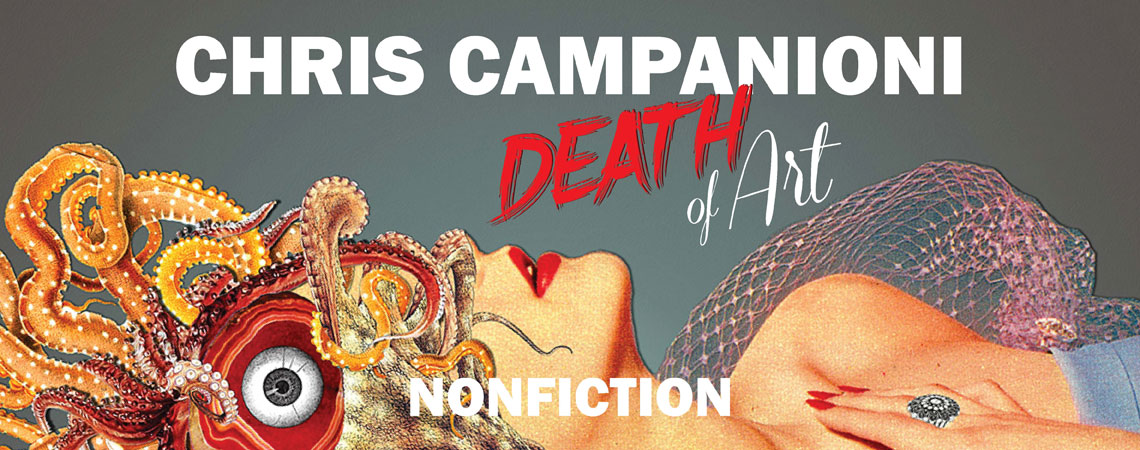Death of Art dissects post-capitalist, post-Internet, post-death culture; our ability and affinity to be both disembodied and tethered to technology, allowing us to be in several places at once and nowhere at all.
“The future is trash. Recycling it, re-arranging it. Making it beautiful again.”
Support small presses & purchase directly from C&R Press or SPD
“Death of Art doubles as an experimental film with alternate endings, a transcription of performance pieces, the starting point of a book Campanioni expects the reader to create through erasure.” — The Brooklyn Rail
“Death of Art glorifies and subverts a culture that strives for the commodification of self and soul, in an age when identity and privacy have become a product.” — Harvard Review
“Award-winning author Chris Campanioni may, for better or worse, be the voice of our generation in which the internet is our stomping ground and making eye contact with our friends and family is a rare treat if someone forgets to charge their phone or leaves it in another room.” — Your Impossible Voice
“Cuban-American writer Chris Campanioni’s new work is billed as non-fiction, but serves as much more. A dancey mashup of poetry and hybrid prose reminiscent of Maggie Nelson’s Bluets, Death of Art is a genre-bending glimpse into what feels like Campanioni’s private diary.” — Duende
“Death of Art is one of the best books I’ve read in years. It flawlessly combines the stream-of-consciousness irregularities that make poetry so heartfelt with the progressive narrative of fiction that gets people to finish a book. I recommend this title to anyone looking for a break from normalcy or needing to take a deep look in the mirror.” — Nomadic Press
“Chris’s poetry has a hashtag, abbreviated quality to it that is both deeply intimate and thrilling.” — Metal Magazine
“Death of Art brilliantly taps into our insatiable need to be seen and felt via social media, and how life is not experienced in our modern age, but rather, documented. … Campanioni is a serious writer and a world class thinker, and there is something great to be gleaned from his latest offering that seems to revel in its ability to avoid classification and open up a dialectic about the modern ways in which we communicate.” — Angel City Review
“… a genre-shattering work, that shifts between biography, essay, fiction and experimental prose.” — minor literature[s]
“One of the ‘ten Latino books that go beyond the Latino label’ … Campanioni’s deconstruction of a modern romance engages the reader by making them question their role … by the end you may be asking where Chris begins and you end.” — Independent Publisher, “10 Latino Books That Go Beyond the Latino Label”

